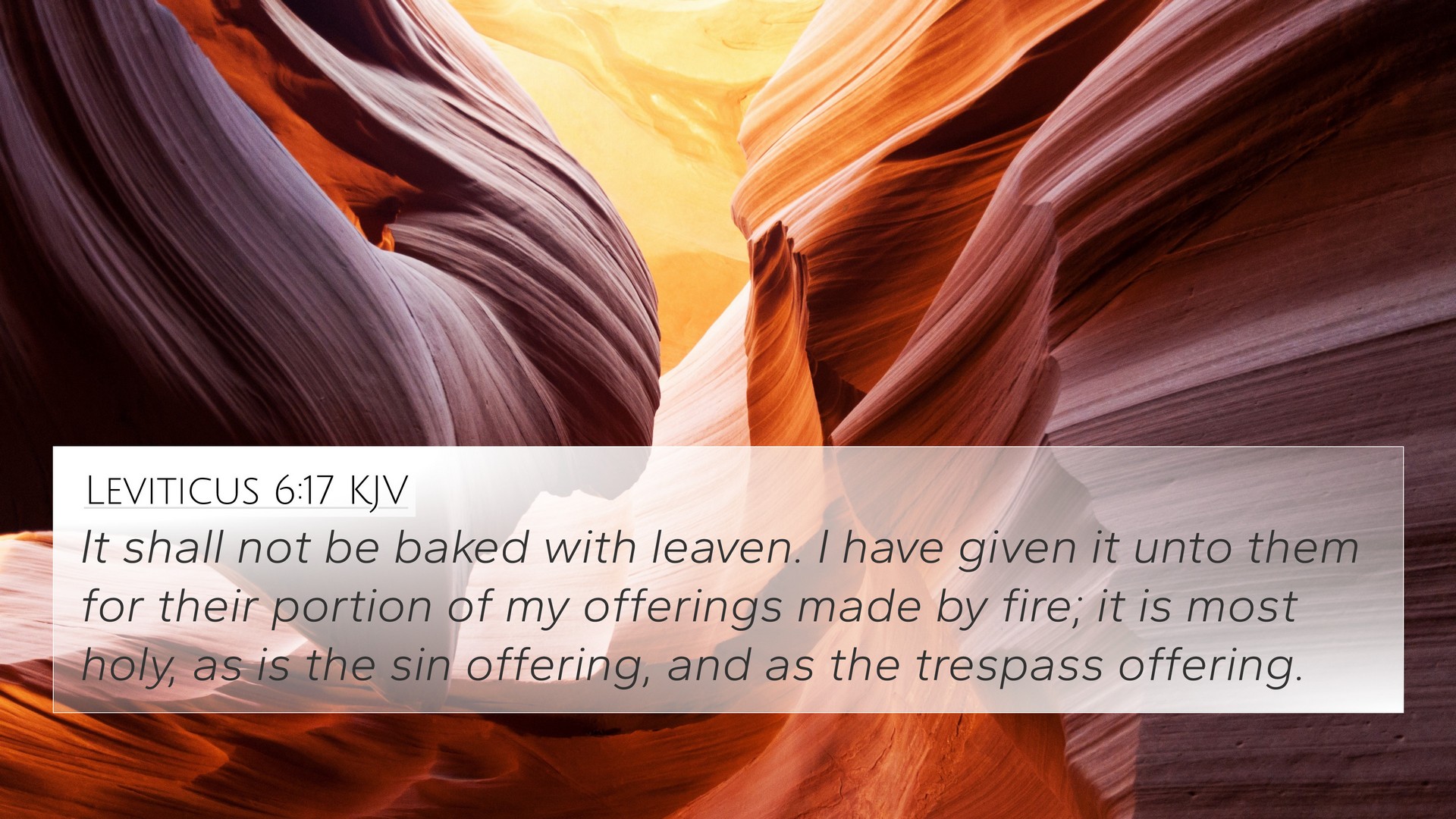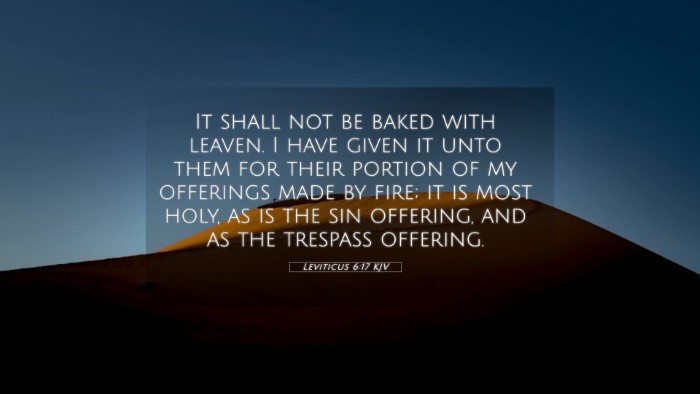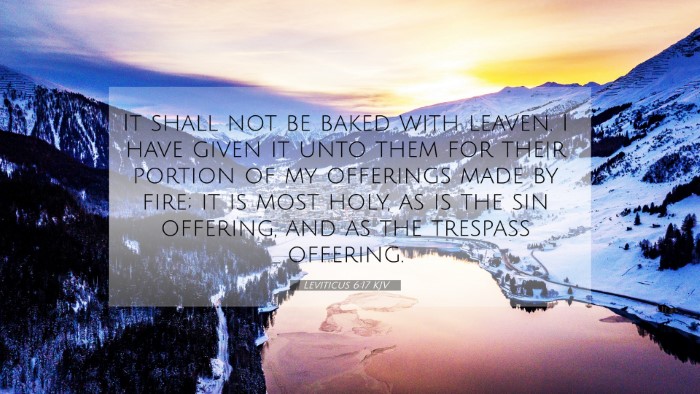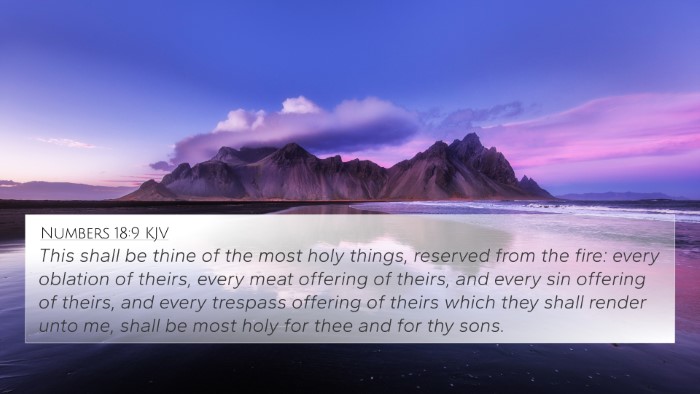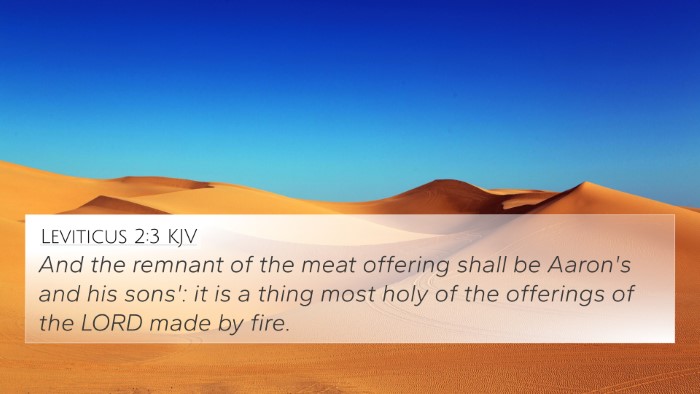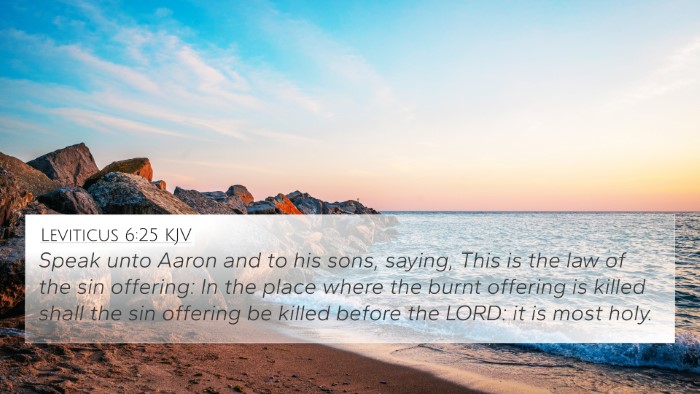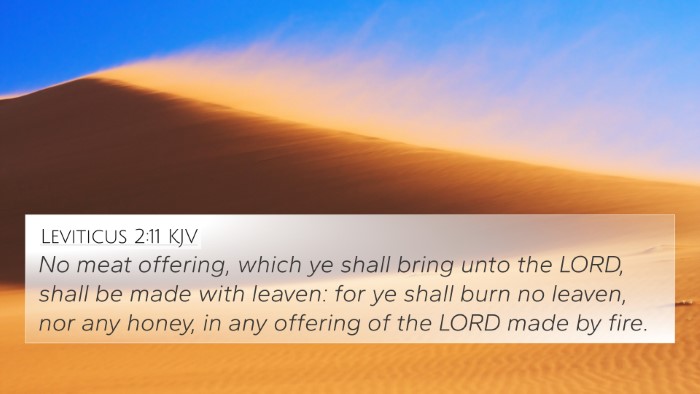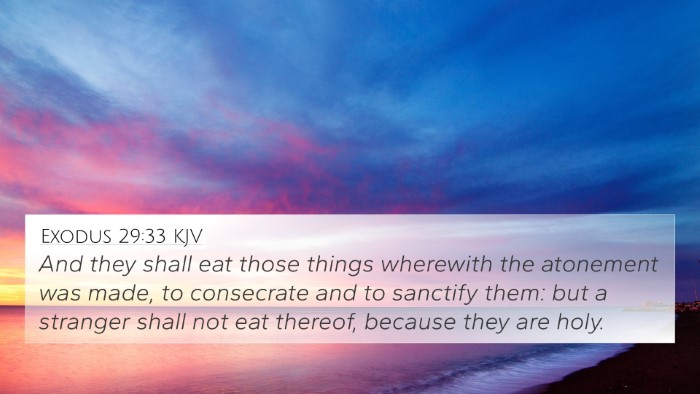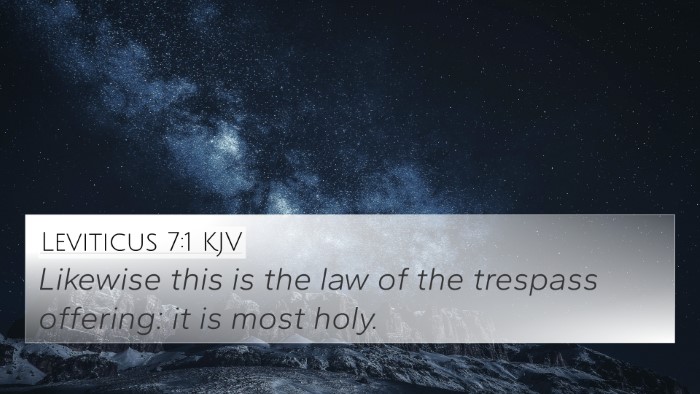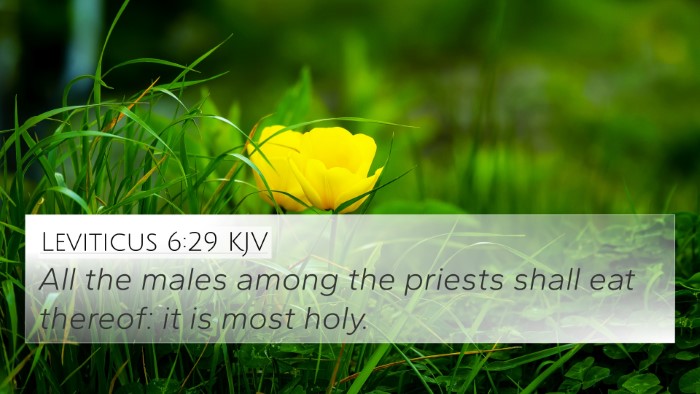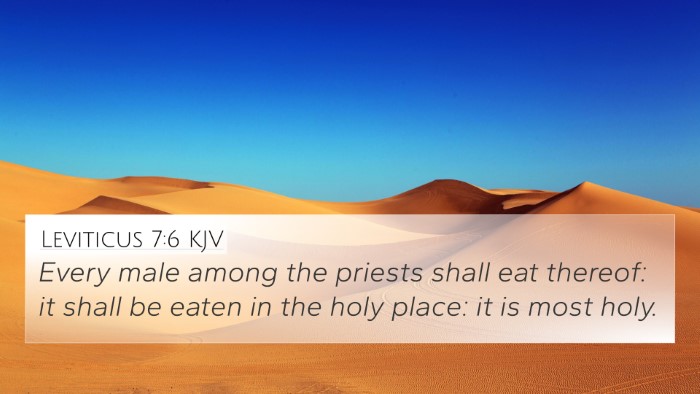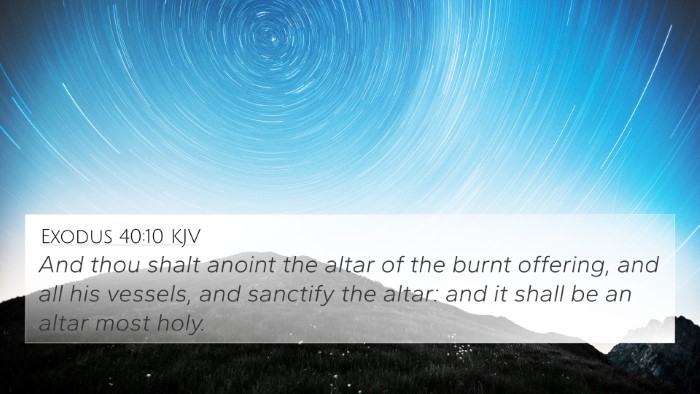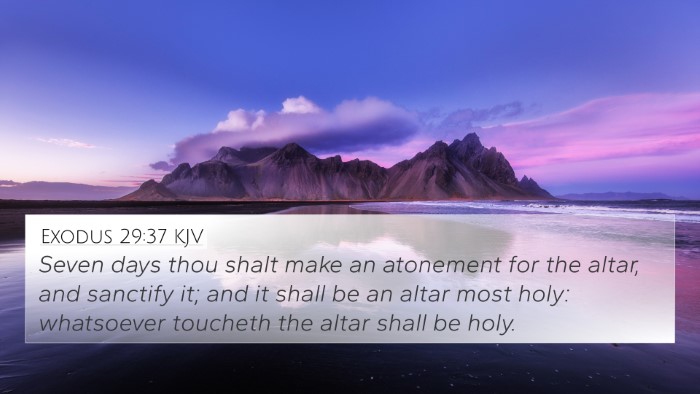Understanding Leviticus 6:17
Leviticus 6:17 states: "It shall not be baked with leaven. I have given it to them for their portion of My offerings made by fire; it is most holy, like the sin offering and the trespass offering."
Summary of the Verse
This verse emphasizes the sacred nature of the offerings designated for God, specifically noting that they must not contain leaven. Leaven symbolizes sin and corruption in the biblical context. God is establishing clear distinctions between holy and unholy offerings, underscoring His requirements for purity in worship.
Interpretations from Commentaries
Matthew Henry's Commentary
Matthew Henry points out that leaven is a type of sin and is often associated with the corruption of the heart and motives. The prohibition against leaven in offerings signifies the purity that God demands of His people. He explains that the offerings must reflect holiness, as they represent a relationship between God and His worshippers.
Albert Barnes' Commentary
Albert Barnes emphasizes the significance of the offerings being most holy. He relates this to the importance of ritual purity in worship and how the offerings were to be treated with utmost reverence. Barnes suggests that this reflects God's meticulous nature in the worship He receives and how it sets the standard for future generations.
Adam Clarke's Commentary
Adam Clarke provides insight into the ceremonial aspects of the law and connects the offerings without leaven to Christ's sacrifice, which was pure and sinless. Clarke argues that the lack of leaven in offerings symbolizes the future sacrifice of Jesus, drawing a parallel between the requirements of the Mosaic Law and the ultimate fulfillment in the New Testament.
Connections to Other Bible Verses
Leviticus 6:17 has various connections with other scriptures, offering a broader understanding of its implications. Below are several relevant cross-references:
- Exodus 12:15 - "Seven days you shall eat unleavened bread. On the first day you shall remove leaven out of your houses..." - Illustrates the importance of purity in relation to the Passover.
- 1 Corinthians 5:6-8 - "Your boasting is not good. Do you not know that a little leaven leavens the whole lump?" - Paul uses leaven to signify sin within the Church.
- Leviticus 2:11 - "No grain offering that you bring to the Lord shall be made with leaven..." - Reinforces the command regarding offerings.
- Hebrews 9:22 - "Without the shedding of blood there is no forgiveness of sins." - Connects the role of offerings in the atonement process.
- Matthew 5:13 - "You are the salt of the earth, but if the salt has lost its taste..." - Raises the theme of purity and the impact on those who are within God’s covenant.
- Romans 12:1 - "Present your bodies as a living sacrifice, holy and acceptable to God..." - Calls for holiness consistent with the offerings in Leviticus.
- Colossians 3:5 - "Put to death therefore what is earthly in you: sexual immorality, impurity..." - Highlights the need for purity in believers' lives akin to the requirements for offerings.
Thematic Bible Verse Connections
The themes of holiness, sacrifice, and purity resonate throughout the Bible. By comparing Leviticus 6:17 with the New Testament teachings, we see an evolution of these concepts:
- Purity in Worship - Both the Old and New Testaments emphasize the need for purity in worship.
- Holiness of Offerings - The importance placed on certain offerings as holy is mirrored in Christ's holy sacrifice.
- Sin and Its Consequences - The absence of leaven can be viewed as a metaphor for avoiding sin.
Cross-Referencing Biblical Texts
Understanding Leviticus 6:17 and its context through cross-referencing provides deeper insights. Here’s how one can explore scriptural themes:
- Tools for Bible Cross-Referencing - Utilizing a Bible concordance can help identify connections across scriptures.
- Bible Cross-Reference Guide - Helps in studying different angles of the narrative and theological themes.
- How to Use Bible Cross-References - Learn to navigate interconnected themes within the scriptures effectively.
- Bible Chain References - Trace theological concepts through the structure of God’s message across the Bible.
Conclusion
The interpretation of Leviticus 6:17 sheds light on the broader themes of holiness and the nature of God’s requirements for worship. Cross-referencing this verse with others helps illustrate the significance of maintaining purity in our offerings to God, whether they are literal or representational in our lives today. By engaging deeply with this scripture, believers can gain valuable insights into the continuity of biblical teachings from the Old Testament to the New Testament.
